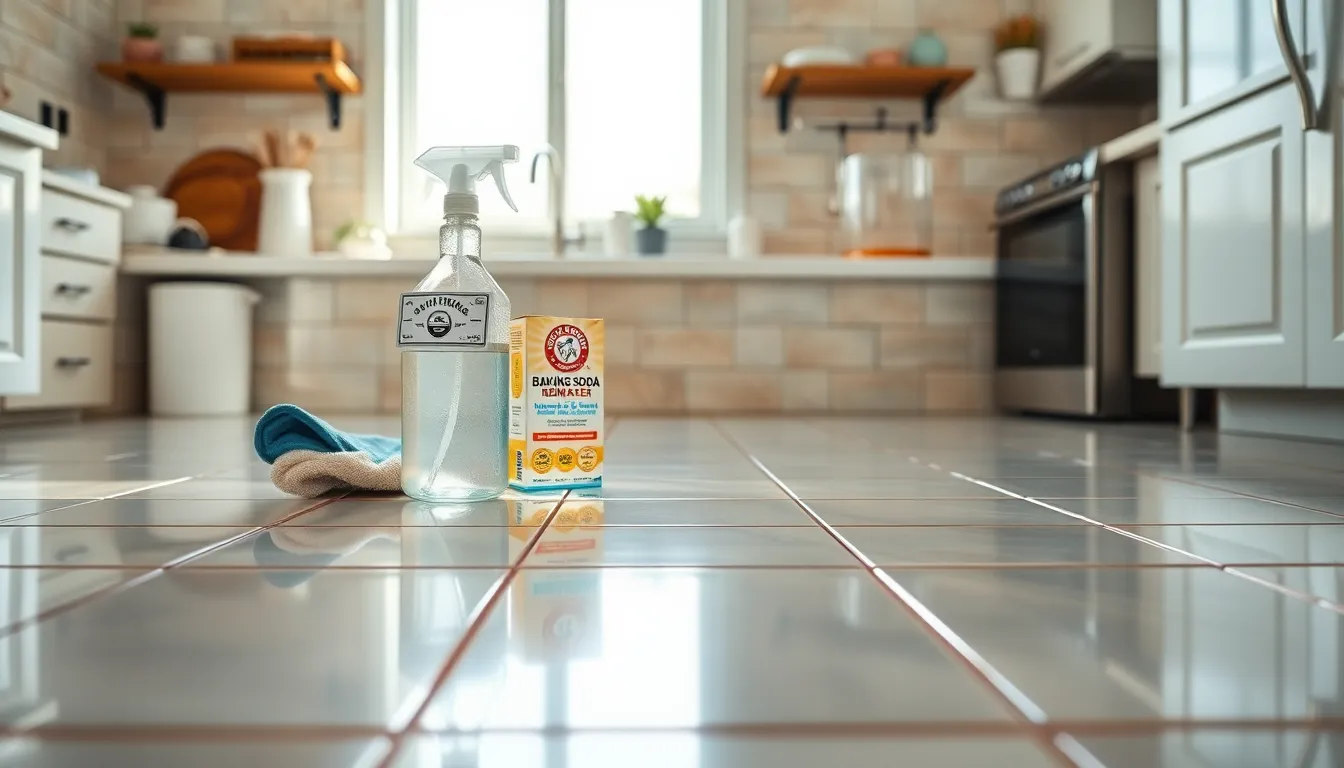Newborns have a way of stealing hearts, but their delicate skin can sometimes throw a tantrum of its own. From diaper rash to baby acne, skin rashes can leave parents feeling a bit overwhelmed. The good news? Most rashes are harmless and can be treated with just a little TLC.
Table of Contents
ToggleUnderstanding Newborn Skin Rashes
Newborns often develop various skin rashes, causing concern for parents. These conditions, while common, require awareness and proper management to ensure the baby’s comfort.
Types of Newborn Skin Rashes
Diaper rash occurs due to moisture and friction between the skin and diaper. Baby acne appears as small red bumps on the face and usually resolves within weeks. Eczema might manifest as itchy, dry patches needing gentle hydration. Milia, tiny white cysts, often develop on the nose or cheeks and typically clear up without intervention. Another common type is seborrheic dermatitis, which leads to greasy, yellowish scales on the scalp, also known as cradle cap.
Common Symptoms to Look For
Redness and irritation serve as primary indicators of skin rashes in newborns. Swelling may accompany these symptoms, especially in areas subjected to friction. Some rashes lead to peeling skin, which usually does not require treatment. Excessive itching indicates discomfort, requiring attention from caregivers. Be alert for changes in behavior, such as increased fussiness or sleep disturbances that may indicate irritation or infection.
Causes of Newborn Skin Rashes

Newborn skin rashes can arise from several factors affecting sensitive skin. Understanding the causes helps in addressing these issues effectively.
Allergies and Irritants
Allergens frequently cause skin rashes in newborns. Common triggers include certain fabrics, fragrances, and detergents that come into contact with the baby’s skin. When exposed, a rash may develop within hours or days. Irritants like urine or stool residue can worsen conditions like diaper rash. Additionally, overheating can lead to heat rash when sweat glands become blocked. Identifying potential allergens or irritants often provides immediate relief.
Infections and Other Medical Conditions
Infections may also be responsible for skin rashes in newborns. Bacterial, viral, or fungal infections can provoke rashes that often require medical attention. Conditions like eczema may lead to chronic skin irritation and inflammation. Seborrheic dermatitis, also known as cradle cap, creates scaly patches on the scalp and face. Fungal infections like yeast can present as red, itchy rashes in warm areas. Recognizing these medical conditions ensures proper treatment and comfort for the newborn.
Newborn Skin Rashes Treatment Options
Managing newborn skin rashes involves various effective treatment options, both home remedies and medical treatments.
Home Remedies
Applying gentle, natural treatments may ease discomfort associated with newborn skin rashes. Parents often find that a warm bath helps soothe irritated skin, especially when using mild, fragrance-free cleansers. Using breast milk can provide relief, as its antibacterial properties promote healing. Keeping the affected area dry remains essential; for diaper rash, frequent changes of diapers reduces moisture exposure. Natural oils, such as coconut oil, work well to hydrate and protect sensitive skin. In addition, using a soft cloth instead of wipes can minimize friction and irritation. These remedies often offer immediate comfort while allowing time for healing.
Medical Treatments
When home remedies don’t yield results, seeking medical treatments becomes necessary. Pediatricians often recommend over-the-counter creams containing hydrocortisone for eczema and other inflammatory rashes. Topical antifungal creams may treat yeast infections effectively. If bacteria cause a rash, a doctor might prescribe antibiotics to address the issue. In cases of severe or persistent rashes, dermatologists can offer specialized care tailored to the newborn’s unique needs. Regular follow-ups help monitor the rash and adjust treatment as required. Parents can provide clear descriptions of symptoms and any observed changes to facilitate the best care approach.
Preventive Measures for Newborn Skin Rashes
Newborn skin rashes often require careful management. Implementing effective preventive measures can minimize the likelihood of their occurrence.
Skincare Routines
Gentle skincare routines play a crucial role in preventing rashes. Use mild, fragrance-free cleansers to maintain the skin’s barrier. Bathing the newborn two to three times a week ensures cleanliness without over-drying the skin. After bathing, pat the skin dry with a soft towel rather than rubbing it. Applying a suitable moisturizer creates a protective layer, especially after baths. Avoid using commercial baby wipes that contain alcohol or harsh chemicals, as these can irritate sensitive skin. Instead, opt for soft cloths with water or gentle cleansers to clean areas prone to diaper rashes.
Environmental Considerations
Environmental factors significantly impact newborn skin health. Maintain a comfortable room temperature to avoid overheating, which can trigger heat rash. Dress the newborn in breathable, loose-fitting clothing made from natural fabrics like cotton. Ensuring proper ventilation in living spaces aids in preventing skin irritation from humidity. Regularly wash baby clothes and bedding with mild, hypoallergenic detergents free from dyes or fragrances. Keep the changing area clean and dry, reducing exposure to irritants that can lead to diaper rash. Taking these steps can help create a nurturing environment for healthy skin.
Managing newborn skin rashes requires a blend of awareness and gentle care. By recognizing symptoms and understanding potential triggers, caregivers can take proactive steps to alleviate discomfort. Implementing effective home remedies and knowing when to seek medical advice ensures that the baby’s skin remains healthy and irritation-free.
Preventive measures play a vital role in maintaining skin health. A nurturing environment combined with a consistent skincare routine can significantly reduce the likelihood of rashes. With the right approach and support, parents can navigate these common challenges with confidence, fostering their newborn’s comfort and well-being.



